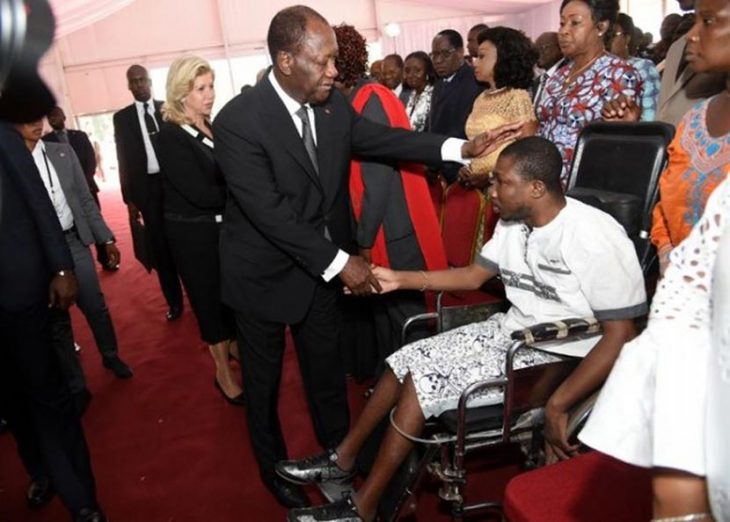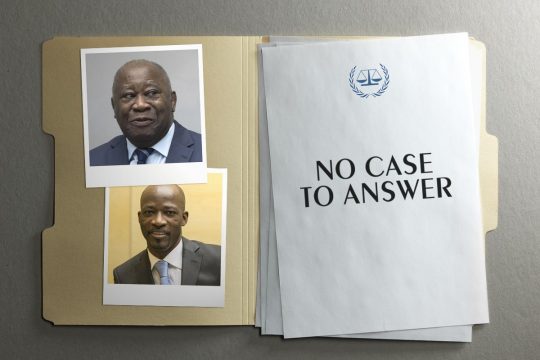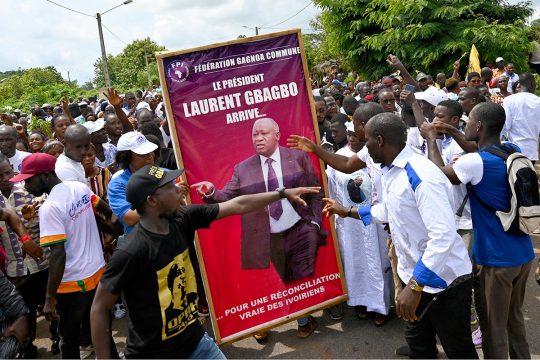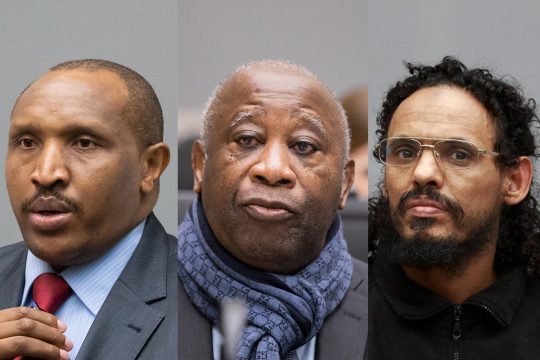The shadow of the violent 2010-2011 crisis still hangs over Côte d'Ivoire. Almost ten years after the civil war that left some 3,000 people dead, the issue of compensation for victims is one of the most difficult, notwithstanding the presentation of cheques to victims and statements from the highest authorities. Last April, President Alassane Ouattara stated that "if there is no compensation for the victims, there can be no reconciliation".
There are no recent figures, but Archbishop of Bouaké Paul-Siméon Ahouanan Djro, President of the National Commission for Reconciliation and Compensation of Victims (Conariv), indicated in April 2016 that of the 874,056 files received, only 316,954 were validated, or 36%. Hundreds of people are crying out in indignation.
In Abidjan, Dominique Oula, head of programmes at the Collectif des victimes de Côte d'Ivoire (Covici), is among those outraged. According to him, people were "removed" from the list of victims to be compensated. "At the time the files were validated, some phone numbers were unreachable, so they were simply removed," he explained, adding that some rejections, particularly those due to errors on the forms, were made by Conariv agents. "The forms were filled out by Conariv agents and not by the victims," he says bitterly.
Politicization of payments
Oula expresses even greater concern about "the politicization of the process of restoring the victims' dignity". According to him, compensation payments are linked to campaigning by people close to the Head of State. "In Abobo, in the middle of the municipal election campaign, Minister Hamed Bakayoko, who was a candidate, was distributing cheques with the Minister of Solidarity," said Oula. The Covici programme officer cites other cases in Guiglo and Guitrozon, where he says cheques were distributed when the ruling party was establishing its bases there. "It's shameful to play political games with the dignity of victims," he adds. These allegations are "totally false", according to the authorities. “There is an organizational structure in place. Compensation continues as long as there are victims," Xavier Effoue, Communication Officer at the Solidarity Ministry, told JusticeInfo. "Today, children go to school thanks to the care provided. People have received funds to start income-generating activities, in addition to compensation. Is this all related to politics?”
Justice and politics
The compensation of victims is not the only issue. Ivorian justice also seems to be struggling to put an end to this black period in history. In the space of a few weeks, two cases involving historical opponents of the current government, Laurent Gbagbo and Charles Blé Goudé, have reappeared in the spotlight.
On Tuesday, October 29, 2019, judges confirmed on appeal a 20-year prison sentence on former president Gbagbo in a case known as the robbing of the West African Central Bank (BCEAO). The first conviction was in 2018. Gbagbo and three of his former ministers, Gilbert Aké N'Gbo (Prime Minister), Désiré Dallo (Economy and Finance) and Justin Koné Katinan (Budget) have been convicted for "fraudulently" opening up BCEAO coffers in the midst of the post-election crisis.
As for Blé Goudé, he is accused of "crimes against prisoners of war" and "crimes against civilian populations". He has been on trial in absentia since the end of October, with the hearings in this case held behind closed doors. A few days ago, the Public Prosecutor announced the transfer of this trial to a criminal court, with a reclassification of the facts, without further clarification.
“Panic in Abidjan?”
Supporters of the former Ivorian president, acquitted in January by the International Criminal Court (ICC), view this conviction as a sign of “panic” among the authorities in Abidjan. “Seeing that the mission entrusted to the ICC Prosecutor ended in a crushing defeat, the Ivorian State has decided to take things into its own hands,” says Assoa Adou, Secretary General of Gbagbo’s party.
Gbagbo’s supporters have strongly denounced an Ivorian government move on October 25 when it sent a letter to the ICC asking the Court not to review the former head of state’s detention. This act shows the Ivorian government’s "rejection of reconciliation", according to Gbagbo’s followers and a "shameful interference by the Ivorian government in the trial of President Gbagbo and Minister Blé Goudé, aimed at removing a bothersome opponent", says Adou.
"We've been forgotten"
Côte d'Ivoire has certainly not finished with the cases related to the 2010-2011 crisis. With one year to go before the next presidential election, these political and social issues are likely to have significant influence on the Ivorian political scene. In the meantime, victims continue to cry out in pain. "I was on the list. Then I was informed that I am no longer there. Yet I am a victim. I lost my right leg. Do I need a bit of paper to prove that? We are tired of saying that we have been forgotten. Every day people come to meet us, take pictures of us, journalists come to see me, but nothing changes. Currently everyone is thinking about 2020. We have been forgotten," says Dembélé Aboubacary, a young Ivorian living in Yopougon, with a catch in his throat.







